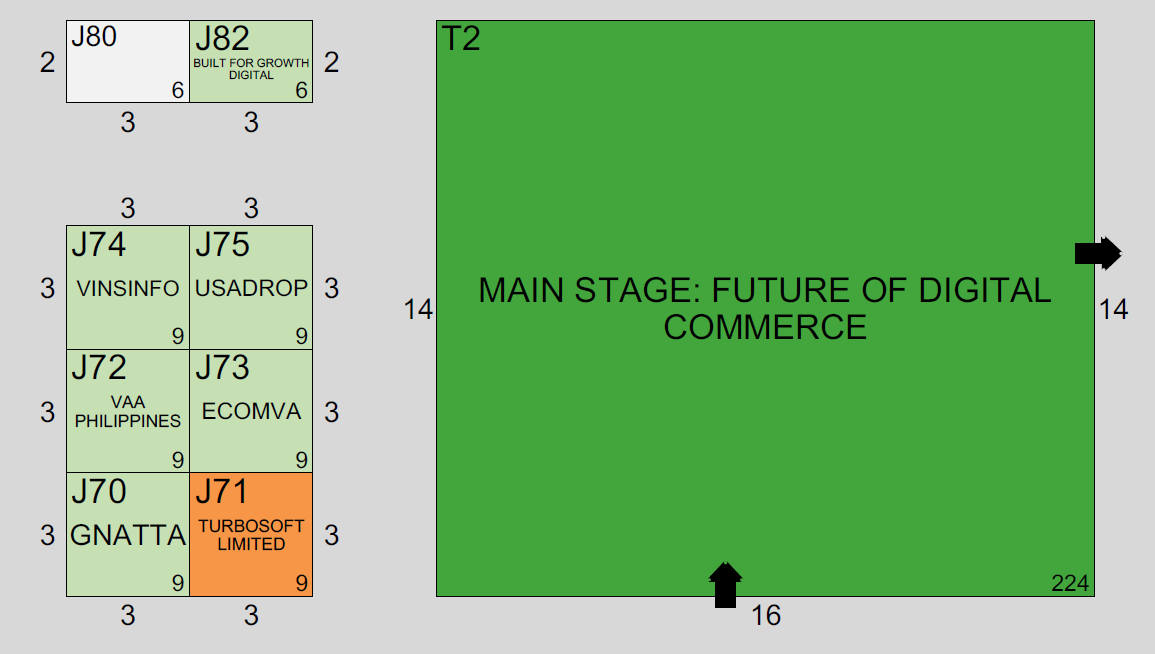In today's fast-paced digital age, having the right Customer Relationship Management (CRM) system isn’t just helpful—it’s game-changing. A good CRM can streamline how you connect with customers, supercharge your sales, and fuel your growth.
Two heavyweights stand out in this space: HubSpot and Salesforce. Both offer robust tools, but they come with some crucial differences that could make or break your choice.
So, how do you decide?
It all boils down to what your business really needs, how much you’re willing to spend, and where you’re headed.
Let’s dive into the unique strengths of HubSpot and Salesforce to see which one aligns with your vision.
1. Ease of Use
HubSpot:
HubSpot is designed with simplicity in mind, offering a user-friendly interface that reduces the learning curve. It’s intuitive, with drag-and-drop functionality and seamless navigation, making it perfect for small to medium-sized businesses or teams new to CRMs. Additionally, HubSpot provides helpful onboarding and training resources, like HubSpot Academy, which makes learning the platform much easier and more efficient. Even those without technical expertise can hit the ground running.
Salesforce:
In contrast, Salesforce is a powerhouse of customisation, but with that comes complexity. While it offers depth for large businesses with intricate needs, it can feel overwhelming for new users and typically requires extensive training to make the most of its features.
Verdict:
If ease of use and a quick start are key for you, HubSpot wins. For those ready to tackle a more robust system, Salesforce may be better suited.
2. Cost and Scalability
HubSpot:
HubSpot offers a free version of its CRM, making it attractive to startups and smaller businesses. As you grow, you can upgrade to paid tiers that unlock advanced tools, but costs can rise significantly if you need more features. That said, HubSpot allows you to scale at your own pace, choosing the features you need when you need them, without locking you into heavy costs right from the start. Its modular pricing ensures you're only paying for what you truly use.
Salesforce:
Salesforce is a scalable solution from the outset, but with that comes higher upfront costs. It’s customisable to fit businesses of all sizes, but the additional fees for integrations and features can add up quickly.
Verdict:
HubSpot offers an affordable, scalable solution for small businesses, while Salesforce is ideal for larger enterprises that need complex CRM features and have the budget to support them.
3. Customisation and Flexibility
HubSpot:
While HubSpot’s out-of-the-box approach works well for most businesses, it offers less flexibility for those needing deep customisation. It’s designed to cover a wide range of needs with minimal setup, but may not fit more niche requirements. However, for most SMEs, HubSpot provides enough flexibility through its growing number of integrations and add-ons without requiring the time and expense of custom builds. It’s a simpler way to get started while still allowing for future growth.
Salesforce:
Salesforce is unrivalled in customisation. Its ability to adapt to any business model, combined with its vast AppExchange marketplace, makes it perfect for enterprises requiring tailored solutions.
Verdict:
For businesses needing a highly flexible CRM, Salesforce is the clear choice. HubSpot, however, is perfect for those content with standard but highly effective solutions.
4. Marketing and Sales Tools
HubSpot:
HubSpot integrates marketing and sales tools seamlessly within its platform. Its all-in-one design is particularly appealing to businesses focusing on inbound marketing, offering automation, email tracking, and CRM tools in one cohesive package. HubSpot’s ability to handle your entire inbound marketing strategy from one place—whether it's capturing leads, nurturing them, or converting them into customers—gives it a massive edge for businesses that prioritise marketing as much as sales.
Salesforce:
Salesforce’s strength lies in advanced sales management and complex customer journeys. While it offers marketing features, they’re less integrated compared to HubSpot’s comprehensive approach.
Verdict:
For businesses prioritising marketing and a smooth alignment between sales and marketing, HubSpot is the winner. Salesforce, meanwhile, excels in complex sales management.
5. Integrations and Ecosystem
HubSpot:
HubSpot’s growing list of integrations includes popular tools like Shopify, WordPress, and Slack, making it perfect for small to medium businesses looking for easy, out-of-the-box connections. Its integration with top marketing tools, combined with its user-friendly API, ensures that HubSpot can adapt to a wide range of business setups while remaining simple to implement. HubSpot's ecosystem is also expanding rapidly, making it a solid choice for future-proofing your tech stack.
Salesforce:
Salesforce’s AppExchange offers thousands of third-party apps, making it the go-to platform for businesses that require a wide range of integrations and customisation options.
Verdict:
Salesforce leads in terms of integrations, but HubSpot provides a simpler, more accessible solution for smaller businesses.
Conclusion: Which CRM Should You Choose?
HubSpot and Salesforce both bring unique strengths to the table. HubSpot is the better choice for smaller businesses looking for an affordable, user-friendly CRM that integrates marketing and sales. It’s ideal for companies that need a solution that works out of the box with minimal setup time and complexity.
Meanwhile, Salesforce is perfect for larger enterprises that need a customisable, scalable platform with advanced sales features. It’s designed for businesses that require a CRM that can grow and evolve alongside them, offering deep customisation and a vast ecosystem of integrations.
At Turbosoft, we specialise in supporting businesses with their HubSpot implementations, ensuring a smooth transition and tailored solutions that meet your business needs.
No matter which platform you choose, aligning your CRM with your long-term goals is the key to maximising your success.
